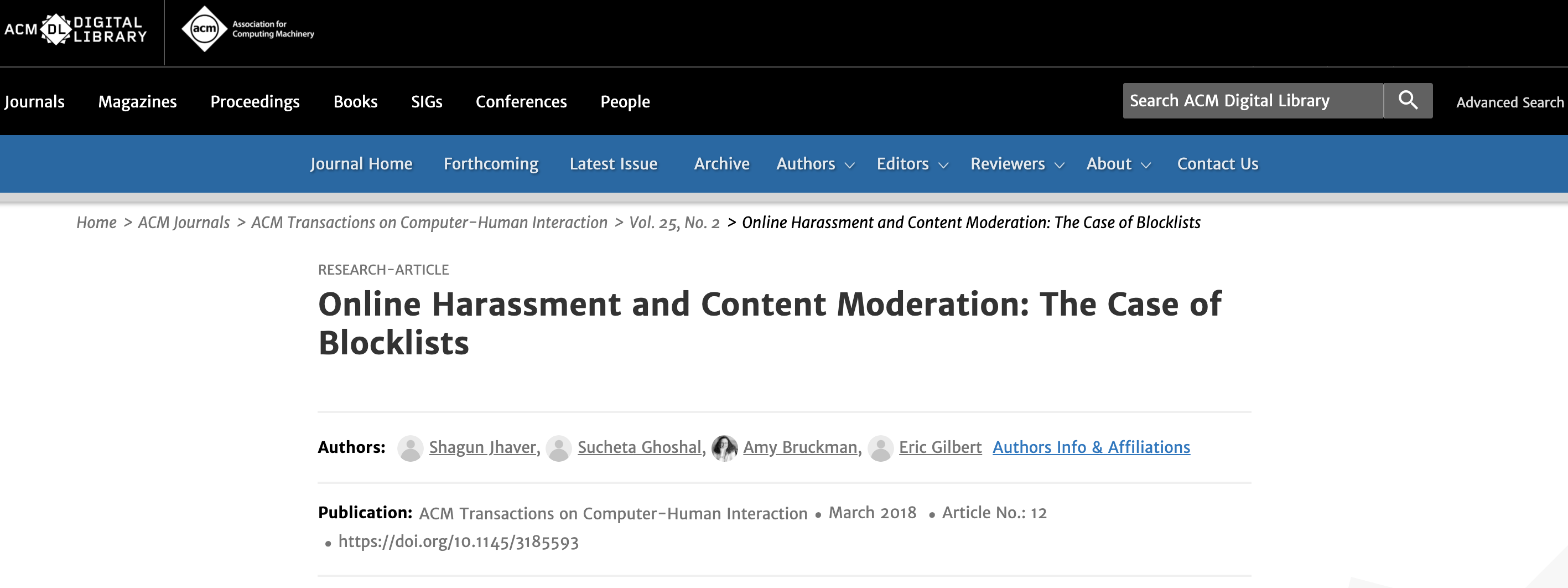Online Harassment and Content Moderation: The Case of Blocklists

Eric Gilbert is a co-author of a paper investigating online harassment through the practices and consequences of Twitter blocklists. Based on their research, Gilbert and his co-authors also propose strategies that social media platforms might adopt to protect people from harassment and still respect their freedom of speech.
Abstract:
Online harassment is a complex and growing problem. On Twitter, one mechanism people use to avoid harassment is the blocklist, a list of accounts that are preemptively blocked from interacting with a subscriber. In this article, we present a rich description of Twitter blocklists – why they are needed, how they work, and their strengths and weaknesses in practice. Next, we use blocklists to interrogate online harassment – the forms it takes, as well as tactics used by harassers. Specifically, we interviewed both people who use blocklists to protect themselves, and people who are blocked by blocklists. We find that users are not adequately protected from harassment, and at the same time, many people feel that they are blocked unnecessarily and unfairly. Moreover, we find that not all users agree on what constitutes harassment. Based on our findings, we propose design interventions for social network sites with the aim of protecting people from harassment, while preserving freedom of speech.
ACM Transactions on Computer-Human Interaction, Vol. 25, Issue 2, March 2018, Article No.: 12